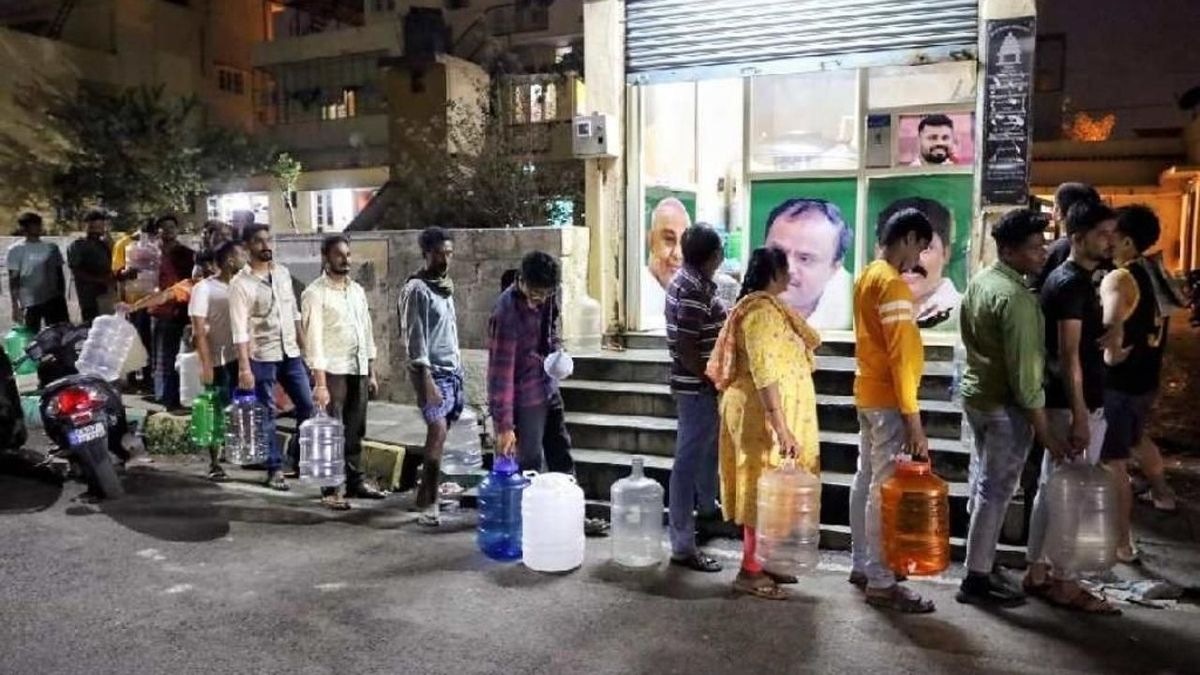
Bengaluru, India’s premier technology hub, is grappling with a severe water scarcity issue as it faces an unusually hot February and March, with water levels in the region running dangerously low. This crisis has put the city’s future at risk, highlighting the urgent need for sustainable water management and climate adaptation strategies.
Unprecedented Heat, Unprecedented Challenge
The city of Bengaluru is experiencing record-breaking temperatures, leading to a significant drop in water reservoir levels. According to recent reports, the water storage is currently 56 thousand million cubic feet (tmcft) less than the previous year, causing distress among the local population and businesses. Rapid urbanization, loss of green cover, and inadequate infrastructure have exacerbated the situation, leaving low-income areas particularly vulnerable. Residents are now dependent on expensive water tankers, with many considering temporary relocation as a coping mechanism.
Innovative Solutions and Government Denial
In response to the crisis, prominent figures like Anand Mahindra, Chairman of the Mahindra Group, have proposed innovative solutions such as harvesting water from air conditioners. Despite these suggestions and the clear signs of distress, Karnataka’s Deputy Chief Minister DK Shivakumar has denied the existence of a water crisis. This denial contrasts sharply with the experiences of Bengaluru’s citizens, who face daily challenges in accessing clean water, underscoring a disconnect between government statements and the reality on the ground.
Looking Ahead: The Path to Water Security
Experts warn that without immediate action, the situation will only worsen in the upcoming summer months. Recommendations to address the crisis include focusing on replenishing lakes, promoting rainwater harvesting, and advocating for smart water usage. The current water scarcity in Bengaluru serves as a stark reminder of the impacts of climate change and the need for concerted efforts to ensure water security for all. As the city continues to battle this crisis, the dialogue around sustainable urban planning and climate resilience becomes increasingly crucial.
As Bengaluru confronts this critical juncture, the potential outcomes of this water crisis serve as a wake-up call for cities worldwide. The need for innovative, sustainable solutions has never been more urgent, with the future of many depending on the actions taken today. Bengaluru’s struggle with water scarcity could redefine how cities globally approach urban development, sustainability, and climate adaptation in the years to come.




















